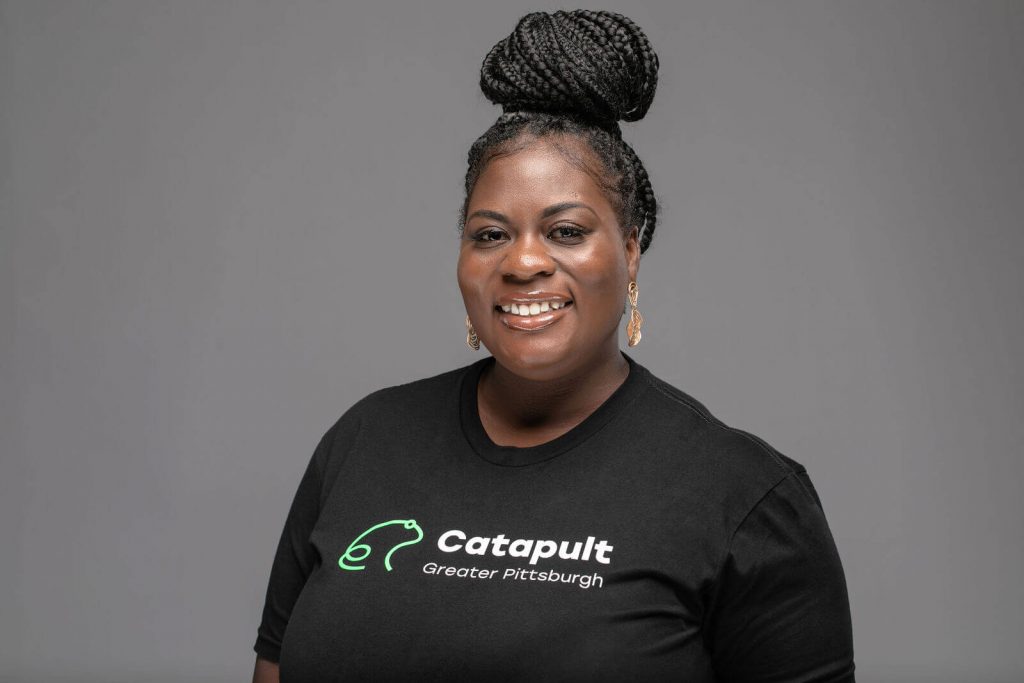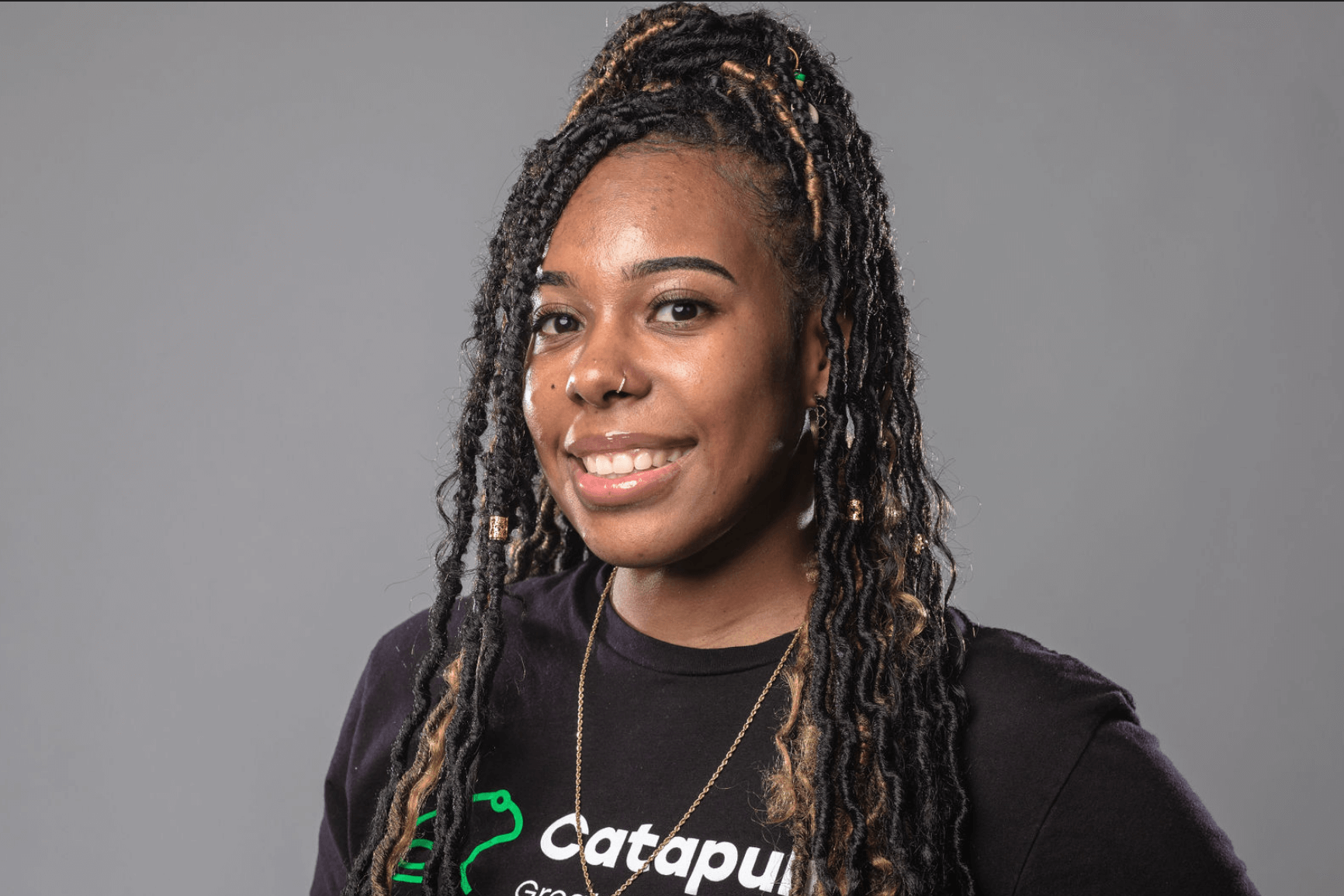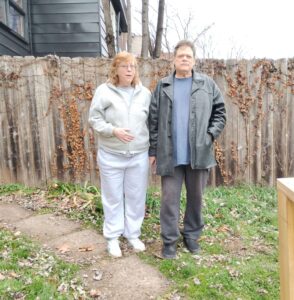You’ve probably heard the classic advice: skip the lattes, ditch the avocado toast, and you’ll be on your way to homeownership. But if building wealth were really that simple, we’d all have keys in hand by now.
At Catapult, we understand that achieving financial freedom is far more personal — and far more complex — than cutting out your favorite coffee. That’s why, in honor of Financial Literacy Month, we’re spotlighting one of our core programs designed to help individuals take control of their finances in a way that’s practical, empowering, and free of judgment.
Say hello to S.A.V.E. (Solid Advice for your Valuable Earnings), a program that’s helping participants rewrite their money stories and take meaningful steps toward their financial goals — no one-size-fits-all formulas, just real support that meets people where they are.
Keep reading to see how S.A.V.E. is transforming the way people think about and manage their money.
What is S.A.V.E.?
“S.A.V.E. is the foundation for everything that we do at Catapult,” explained Catapult Director of Homeownership Brettney Duck.
Through this program, Catapult provides free, trauma-informed financial counseling, with participants gaining access to one-on-one guidance from a dedicated financial counselor, as well as access to group workshops.
Whether someone’s goal is homeownership or if they just want to pay off some debt, S.A.V.E. is the starting point. After completing the program, those interested in homeownership typically move on to D.O.O.R., Catapult’s pre-purchase homeownership program, and then K.E.Y., which offers post-purchase education. Participants in our Revitalizing Neighborhoods & Increasing Homeownership (RNIH) program also often work with S.A.V.E. counselors, as do those in our entrepreneurship programs, who may turn to S.A.V.E. for support in optimizing their business finances.
How does the S.A.V.E. process work?
At the beginning of the S.A.V.E. program, participants collaborate one-on-one with a financial counselor to define clear, achievable goals. From there, they dive into a powerful session that explores the emotional, cultural, and personal values that shape their relationship with money. With that deeper self-awareness as a foundation, participants then move into hands-on budgeting, guided by a customized action plan designed to support their unique financial journey.

Once that foundation is in place, the focus often turns to building and improving credit. Through monthly sessions, participants track their spending, monitor changes in their credit score, and receive clear, personalized steps to keep making progress week by week.

Participants can stay in the S.A.V.E. program for as long or as briefly as they need. Life happens, and if someone needs to step away for a time, they’re always welcome to return and continue their journey right where they left off.
Rewriting money stories
Amekha Davidson has served as a financial education counselor at Catapult for over a year, guiding individuals from all backgrounds through the S.A.V.E. program. Some participants arrive with solid credit and savings, looking for that final push to achieve a goal like homeownership. Others are navigating financial challenges on a fixed income, working toward greater stability.
Regardless of where they start, Davidson and her fellow counselors place a strong emphasis on shifting mindsets by helping participants build confidence, reframe limiting beliefs, and see new possibilities for their financial future.

In addition to the mindset work, one of the most impactful skills participants gain through S.A.V.E. is learning how to track their spending. Financial counselor Duck notes that keeping a weekly spending log helps participants not just understand where their money is going, but also recognize emotional and situational triggers behind their spending habits.
For S.A.V.E. participant Kennola Slater, this part of the program has been especially eye-opening.
“Writing down all my expenses has made a big impact,” she said. “Now I can look at my finances and clearly see how to tackle things and where I can cut back.”
“Tracking your spending is something people often overlook, but it’s incredibly important,” Duck explained. “You might notice you spend more around a loved one’s death anniversary, or the day after you get paid. Once you become aware of those patterns, you’re in a better position to shift them.”
S.A.V.E. is just the start
For Duck, the beauty of the S.A.V.E. program is that it doesn’t just operate in a silo — it works hand-in-hand with Catapult’s other programs to move individuals to a place of economic prosperity.
“The two easiest ways to build wealth are through owning a business and owning a property,” explained Duck. “A lot of people come into S.A.V.E. thinking that they can budget their way out of poverty, but that’s not necessarily true, because sometimes there’s just not enough money coming in.”
In those cases, Catapult’s financial counselors offer ideas for how participants can increase their incomes. For example, they may notice that a S.A.V.E. participant has been selling dinners out of their kitchen, so they connect them to Catapult’s entrepreneurship programs to develop that income stream.
It may also mean getting them to dream bigger and consider homeownership.
According to a report from Habitat for Humanity, home equity represents the largest proportion of wealth (34.5%) for U.S. households, with U.S. homeowners having an average net wealth 400% higher than that of renters with similar demographics and earnings.
“What I love about S.A.V.E. is that there are people who come through that don't have the goal of homeownership or entrepreneurship, not because they don't want it, but because they just didn't see it for themselves. I love to watch that shift from, ‘Oh, I'm just here because my credit is bad to now I am ready to purchase a home or start a business.’”
Bretteny Duck




